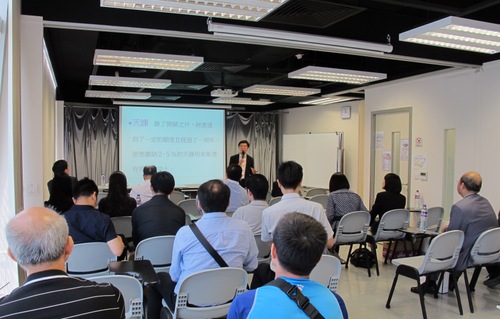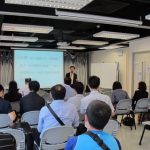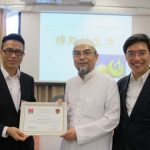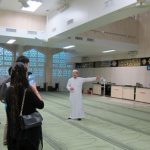 Industry partners highly interested in the Workshop
Industry partners highly interested in the Workshop
Macau Government Tourist Office (MGTO) held two sessions of Islamic Culture in Tourism Workshop in Hong Kong for tour guides, employees of hotels and tour operators from Macau as well as MGTO staff on 4 September and 18 September. The purpose of the Workshop is to familiarize travel industry personnel with the religion of Islam so that they can provide more proper and considerate service for Islamic travelers to Macau. Dr. Au Chi Kin, an academic advisor of training courses for tourism industry personnel under the Hong Kong Association of Registered Tour Co-ordinators, and Imam Uthman Yang of the Masjid Ammar and Osman Ramju Sadick Islamic Centre, were invited to lecture the Workshop actively participated by industry partners. The Workship included a theory lecture and a field trip to Mosque. The lecturers introduced to trade attendees the beliefs and daily life of Muslims as well as the role and meaning of Islam, followed by a visit to a Mosque where attendees could observe their ritual prayer. The Workshop enabled trade attendees to gain a deeper understanding of things they should pay attention to when serving Muslim guests. Both industry partners and MGTO staff showed a great interest in the workshop content. In recent years, Macau has welcomed a growing diversity of visitors. To cater for the demand by the tourism sector and foster tourism diversification, MGTO regularly organizes workshops and courses in partnership with different training institutes to enhance both the service quality and hospitality skills of tourism industry personnel.
View gallery



